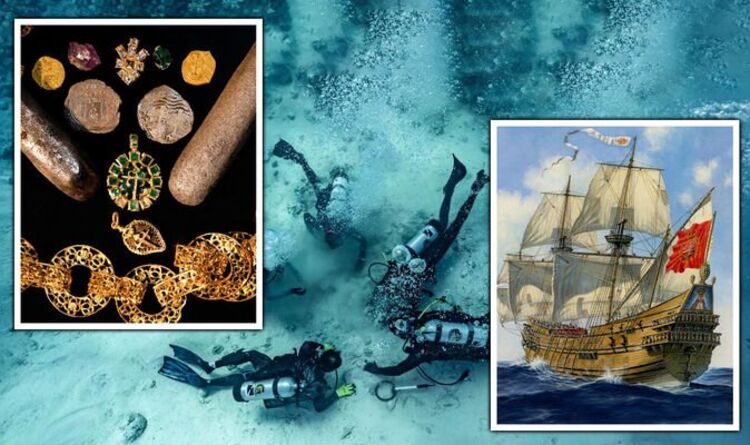The Nuestra Señora de las Maravillas (Our Lady of Wonders) was a Spanish ship that sank somewhere in the Bahamas around 1656. While it was common for ships to go missing in turbulent waters in that period, what made this one special was the amount of treasure that it carried. While attempts had been made to find the treasure, they did not yield any results till now as treasures from the shipwreck were found near the Little Bahama Bank. According to The Guardian, the debris covered around 13 km of area and the finds included jewel encrusted pendants and gold chains.
The discovery was made by Allen Exploration along with a team of marine archaeologists and divers from both Bahamas and United States. The mission was also supported by the Bahamian government who will be displaying the find in the Bahamas Maritime Museum in Freeport.
“When we brought up the oval emerald and gold pendant, my breath caught in my throat. I feel a greater connection with everyday finds than coins and jewels, but these Santiago finds bridge both worlds. The pendant mesmerizes me when I hold it and think about its history. How these tiny pendants survived in these harsh waters, and how we managed to find them, is the miracle of the Maravillas,” Carl Allen, founder of Allen Exploration, told The Guardian regarding the find.
“The wreck of the galleon had a tough history – heavily salvaged by Spanish, English, French, Dutch, Bahamian and American expeditions in the 17th and 18th centuries and blitzed by salvors from the 1970s to early 1990s. Some say the remains were ground to dust. Using modern technology and hard science, we’re now tracking a long and winding debris trail of finds,” he added.
According to official accounts, the ship was headed to Spain from Havana along with the treasures, but it sank after hitting the reef. Dr Sean Kingsley, an English marine archaeologist, said that latest technology is being used to study the shipwreck and this can be a “huge archaeological find”. (WION)
Find out more by engaging Buzzer.lk and Buzzer History.




